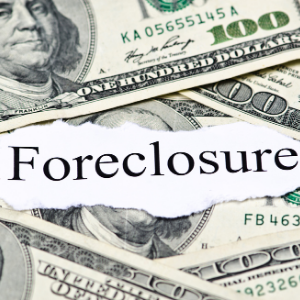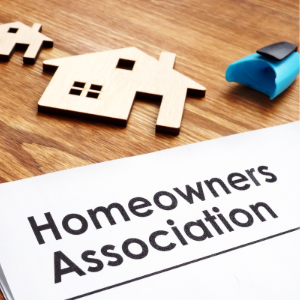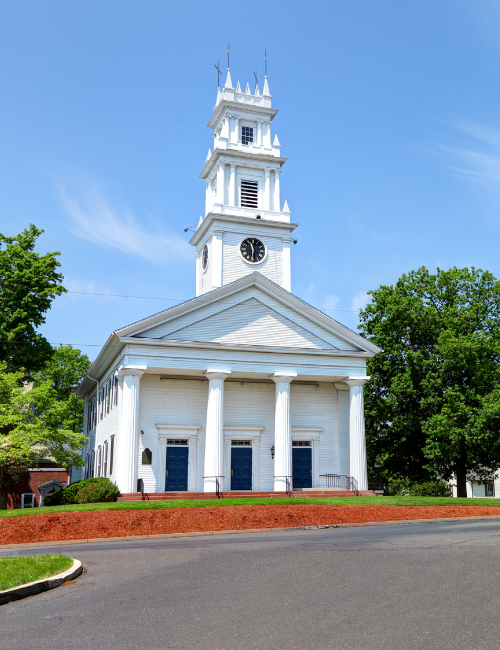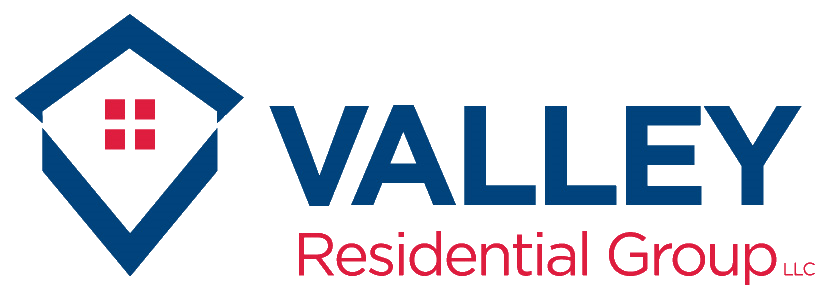
Understanding Homeowners Associations (HOAs) and Their Powers
Homeowners Associations (HOAs) administer residential communities, primarily in Bristol, CT, and are intended to protect the visual and functional integrity of the neighborhoods by enforcing the rules and regulations established in the community’s governing documents.
Understanding an HOA’s capabilities is critical for homeowners. If rules are broken or dues are not paid, these associations can issue penalties, place property liens, and even commence foreclosure procedures. In Bristol, CT, as elsewhere, HOAs are governed by state laws and specific covenants set when the association was formed.
Homeowners must become acquainted with these agreements to grasp their rights and obligations fully. While HOAs strive to protect property values and promote community harmony, disagreements can emerge when residents believe their rights have been violated or face actions such as liens that could lead to foreclosure.
Understanding how these groups operate enables homeowners to efficiently negotiate possible problems within the legal framework given by Connecticut real estate laws.
State Laws Governing HOAs in Connecticut

In Connecticut, homeowners associations (HOAs) are governed by particular state statutes that define their powers and limits. Understanding these restrictions is critical for Bristol, CT, homeowners seeking to defend their property rights.
The Common Interest Ownership Act (CIOA) oversees HOAs in Connecticut. It establishes criteria for how associations administer common areas, collect dues, and enforce rules. Importantly, while HOAs can place liens on properties for unpaid assessments or fines, they must adhere to stringent legal procedures before beginning foreclosure proceedings.
This implies that an HOA cannot simply take your house; they must follow due process and offer appropriate notice to homeowners. The CIOA promotes openness in financial transactions and encourages HOAs to use fair standards when dealing with homeowner issues.
By being acquainted with these state regulations, Bristol residents can better navigate their relationship with their HOA and protect their homes from unjust actions.
Legal Rights of Homeowners in Bristol, Connecticut
Homeowners in Bristol, Connecticut, have special legal protections that protect them from wrongful actions, including those done by a Homeowners Association (HOA). Understanding Connecticut’s real estate laws is critical for homeowners in conflict with their HOA.
These safeguards ensure that any attempt by an HOA to seize a property complies closely with state regulations and the specific covenants contained in the community’s governing documents. Under Connecticut law, an HOA cannot seize a home arbitrarily; instead, it must follow due process, which often includes notifying the owners of suspected infractions and providing time for remedy.
Furthermore, any enforcement action must be consistent with state statutes and the association’s bylaws. If financial responsibilities such as dues or assessments are in dispute, the HOA may place a lien on the property, but court approval is still required to proceed with foreclosure.
Homeowners have the legal right to oppose such activities, and they should be aware of their rights under state law and their HOA agreement to safeguard their interests in Bristol appropriately.
Financial Responsibilities for Homeowners in an HOA
Homeowners in Bristol, CT, who are members of a Homeowners Association (HOA), have specific financial duties critical to preserving their property and community standards. One of the principal tasks is to pay regular HOA fees, which fund standard area upkeep, landscaping, security services, and, in some instances, utilities or insurance for public places.
These costs can vary significantly depending on the amenities provided by the HOA. In addition, homeowners may pay extra assessments for unexpected repairs or upgrades requested by the neighborhood.
Homeowners must recognize that failure to pay these financial commitments may result in consequences such as fines or interest fees. In severe circumstances, repeated nonpayment may result in legal action by the HOA, including liens on the property or foreclosure procedures.
Understanding these financial duties helps homeowners comply with HOA standards and saves them from severe legal penalties for their Bristol property.
Navigating the Complexities of HOA Bylaws and Covenants
Navigating the complexity of HOA bylaws and covenants in Bristol, CT, necessitates a complete understanding of homeowner association regulations governing property rights and obligations. Homeowners should become acquainted with the regulations specified in their community’s governing documents to avoid problems or misunderstandings.
These regulations and covenants frequently govern anything from external changes to landscaping options, influencing how homeowners manage their properties. Failure to comply with these laws can result in fines or legal action enforced by the HOA.
Homeowners must frequently check any adjustments or revisions to these rules, as they might change over time and substantially impact their ownership rights. Consulting with a real estate attorney familiar with Connecticut’s property rights and HOA governance regulations can help you interpret these complex documents.
By knowing their obligations under these bylaws, Bristol residents can better protect their investment and maintain compliance with all the standards outlined by their homeowner organization.
For those overwhelmed by HOA restrictions or ongoing disputes, Valley Residential Group LLC offers a simple way to skip the hassle and sell your Bristol house fast for cash as-is—without navigating the red tape. Whether in Bristol or nearby cities like Southington, Plainville, or New Britain, this can be a stress-free way to move on from HOA complications.
Importance of Understanding Your Community’s Declaration Documents
Learning about your community’s declaration documents is essential if you think a Homeowners Association (HOA) could take over your property in Bristol, CT. These documents specified a specific community’s boundary rules, regulations, and covenants.
They benefit homeowners since they describe the obligations of an HOA and a property owner. By researching these documents, you will learn the extent of your HOA’s enforcement powers, including legal proceedings that can be initiated against rule violators or defaulters on payments.
Understanding these documents helps you know how the assessments will be done and what fines will be imposed for noncompliance. It also outlines the lien rights that the HOA may have on your property that would lead to foreclosure under specific scenarios.
Knowledge regarding these matters helps homeowners address any challenges with their HOA and ensures that they have legal standing in their neighborhood.
Developing Community Standards with Governing Contracts
In Bristol, CT, homeowners associations (HOAs) can enforce rules within their governing agreements to uphold community standards. These regulations are often captured within the HOA’s covenants, conditions, and restrictions (CC&Rs), which homeowners consent to when purchasing property in the neighborhood.
To maintain compliance with these regulations, HOAs’ enforcement actions are wide-ranging and may include the imposition of fines, violation notices, and restricted access to shared spaces. More serious cases of non-compliance can result in placing liens on properties, which may lead to foreclosure proceedings if unresolved—this is usually done for unpaid dues or fines.
However, homeowners’ protections exist under state law, and residents are entitled to due process before facing harsh measures like property liens. In the case of HOA enforcement actions, residents need to consider the CC&R obligations alongside their legal rights provided by Connecticut real estate law.
Pre-Foreclosure Action Steps for Associations

Bristol Homeowners Associations (HOAs) have to go through defined action steps before a property owner may be foreclosed on. During the initial stage, the homeowner association attempts to remedy overdue dues or violations through outreach, which in this case would be utilizing formal communication like letters notifying them of payment or covenant violations.
If no other attempts to resolve the issue are successful, the HOA may impose fines and late fees as outlined in the governing documents. The association can also set up a payment plan to help homeowners with overdue assessments.
If no attempts are made to resolve the issue, the HOA has the right to mortgage the property, thus granting a legal interest for outstanding dues. This mortgage is necessary before initiating foreclosure as it safeguards the association’s stake in recovering unpaid amounts.
Homeowners possess rights under state and federal legislation that safeguard them from abusive foreclosure actions. These rights also allow them to contest or negotiate undesirable issues with their HOA, highlighting the importance of Connecticut real estate laws.
Description of the Process of Foreclosure by HOA
In Bristol, CT, Homeowners Associations (HOAs) can initiate foreclosure proceedings when homeowners default on their dues or assessments. The HOA commences foreclosure by placing a lien on the property for overdue fees.
With this lien, the HOA obtains a legal claim to the property, which might lead to foreclosure. Should the debt remain unpaid after the lien is filed, the HOA can initiate foreclosure proceedings on the house.
Homeowners need to understand that through this mechanism, the HOA can potentially auction the house to recover unpaid dues. In the course of this procedure, however, homeowners do have the right and ability to resolve their debts before losing their homes.
Having an attorney who understands Connecticut’s real estate legal system assist you in these matters could provide significant clarity about your rights and help resolve such challenging issues. The HOA’s foreclosure procedure is governed by laws that outline how liens are imposed and how homeowners may contest them.
Common reasons for HOA foreclosures in Connecticut
Homeowner associations (HOAs) in Connecticut can only initiate foreclosure actions on limited, specific grounds, mainly overdue dues and assessment payments. In Bristol, CT, the HOA obtains the right to foreclose if members pay neither maintenance payments nor community servicing tolls as per the contract with the HOA.
Generally, these are ascertained within the relevant HOA governing documents, and some state law will dictate how such actions can be pursued. If repetitive breaches of community rules that trigger substantial penalties remain unaddressed, foreclosure is possible.
Homeowners need to understand that even though the HOA has almost unconstrained power to enforce foreclosure, payment of dues, and strict adherence to community rules, there are minimal procedural thresholds that must be satisfied before moving towards foreclosure. Notice given, opportunity to remedy the receivables’ defaults, and other such measures shall be necessary.
Such understanding ensures that homeowners appreciate the HOA implications of noncompliance or impending financial burdens to HOA-controlled communities in Connecticut.
The Long-Term Consequences of Losing a House to an HOA Foreclosure
An HOA foreclosure in Bristol, CT, can devastate a homeowner. The HOA exercising its foreclosure power comes with severe emotional and financial repercussions.
With foreclosures, homeowners often face a destroyed credit score, which will curtail their chances of getting future loans or mortgages. The foreclosure process is dehumanizing, and people usually feel at the mercy of the HOA.
Beyond credit and foreclosure, losing a home shifts the family’s stability network. This displacement creates challenges for children to access school or jobs. Besides, the lost equity over time means a significant financial loss, which reduces future investment opportunities.
Understanding real estate laws and homeowner entitlements is pivotal to navigating these situations positively and avoiding HOA foreclosure pitfalls in Connecticut.
Protect Your Property: A Homeowner’s Guide to Disputes with HOAs

Homeowners in Bristol, CT, embroiled in disputes with their Homeowners Associations (HOAs), must know local laws and real estate frameworks to defend their properties and rights. The laws surrounding HOAs are fundamental, as these authorities have significant power in shaping community rules and controlling properties within their jurisdiction.
In Connecticut, homeowners’ associations (HOAs) can impose fines or place liens on properties for failure to comply with community guidelines or unpaid dues. However, they cannot physically take control of a house without first following the necessary legal steps. Homeowners must familiarize themselves with the HOA’s governing documents, especially the CC&Rs (declaration of covenants, conditions, and restrictions), to know what rules and enforcement procedures are relevant to their neighborhood.
Legal advice from a real estate lawyer may assist homeowners in understanding these matters and resolving issues through negotiation or mediation. Reaching out to the HOA, attending meetings, and speaking with board members can resolve conflicts before they escalate.
Can HOA Fees Make You Lose Your House?
Residents in Bristol, CT, may wonder whether failing to pay HOA fees can put their homes at risk. When interfacing with a homeowners’ association (HOA), it is crucial to grasp your entitlements and real estate regulations.
An association can impede the sale of your property by placing a lien for unpaid dues. Failure to clear these dues may lead the HOA to initiate foreclosure proceedings, which could leave you with no choice but to lose your house.
It is essential to periodically review your community’s covenants and oversee specific state regulations regarding HOA powers and foreclosure regulations in your residence. A real estate professional can guide you through Connecticut’s foreclosure laws and help you navigate HOA conflicts more efficiently.
Taking on HOA responsibilities and understanding legal safeguards allows homeowners to mitigate the risk of losing their property to foreclosure because of unpaid dues.
How Much Power Do HOAs Have?
Bristol, CT’s homeowners associations possess considerable power in managing a community and enforcing rules. It is limited but significant.
Homeowners worried about losing their property to an HOA need to understand the limits of an HOA’s jurisdiction. HOAs have the power to impose deed restrictions and covenants (CC&R), which often pertain to the aesthetic and upkeep of the property and behavior within the neighborhood.
In extreme cases, HOAs are permitted to impose fines and may even impose liens on the houses for noncompliance with these laws. While they cannot physically take the house without going through due process, foreclosure proceedings can be initiated if payment assessments are not settled over extended periods.
Residents of Bristol must remember that Connecticut laws protect residents from discriminatory practices by HOAs and check if any actions taken by an HOA are within legal bounds. A real estate lawyer can explain to homeowners the limits of an HOA’s jurisdiction and how to protect their interests amid community living.
Can You Remove Your House from the Association?
For homeowners in Bristol, CT, the primary concern is usually withdrawing their houses from an Association. This may pose a tricky question regarding understanding the ins and outs of Homeowners’ Associations (HOAs). Withdrawing a home from the Association requires some knowledge of the specific real estate laws and the HOA’s governing documents.
Commonly, they are regulated by covenants, conditions, and restrictions (CC&Rs), legal documents created at the time of community development. To detach your home from an HOA, you generally need the approval of more than half of the association’s members and an amendment to the CC&Rs, which will often be a lengthy and challenging process.
To determine relevant options, residents must study their association’s bylaws and consult a real estate attorney specializing in HOA law. Assessing your options for disengaging from an HOA, without incurring community backlash, hinges on understanding your rights within Connecticut’s real estate laws.
Can a Homeowners Association Make You Sell Your House?
In Bristol, Connecticut, the roles of homeowners associations (HOAs) have become widely recognized as pivotal for maintaining specific standards within neighborhoods. “Can a homeowners association force you to sell your home?” is still widely debated. The consensus is that “An HOA cannot force a homeowner to sell their property,” and this sentiment holds here.
Residents must understand that significant consequences may arise if they contravene the HOA’s covenants, conditions, and restrictions (CCRs). Community guidelines are drawn for a reason; breaching them could result in punitive fines or liens on their property.
In extreme cases, ongoing disregard for community guidelines or nonpayment of dues could result in an HOA initiating foreclosure proceedings. Homeowners in Bristol need to know their rights and the peculiar real estate laws surrounding HOAs in Connecticut.
Comprehending HOA legal frameworks enables members to safeguard their investments and circumvent conflicts threatening their property stakes.
Whether you’re dealing with mounting HOA fees, complicated bylaws, or the risk of foreclosure, Valley Residential Group LLC is here to offer a hassle-free way out—helping homeowners in Bristol and surrounding Connecticut communities sell fast, avoid legal headaches, and move forward confidently. Contact us at (860) 589-4663 today for a no-obligation offer!
Helpful Bristol Blog Articles
- Understanding Real Estate Agent Fees For Selling Your Home In Bristol, CT
- Can an HOA Take Your House In Bristol, CT?
- Can An Executor Sell Property In Bristol, CT?
- How To Successfully Sell Your House At Auction In Bristol, CT
- How To Sell Your Bristol, CT Home Below Market Value
- Understanding Equity Requirements To Successfully Sell Your House In Bristol, CT
- Can Medical Debt Affect Your Home Ownership In Bristol, CT?
- How To Sell Your House Directly To The Bank In Bristol, CT
- Living In A House During Probate In Bristol, CT
- How To Sell A House With A Mortgage In Bristol, CT
- Understanding The Cost Of Home Staging In Bristol, CT: A Guide For Sellers
- Maximize Your Sale: How To Sell Your Bristol, CT House As-is Quickly And Effectively

